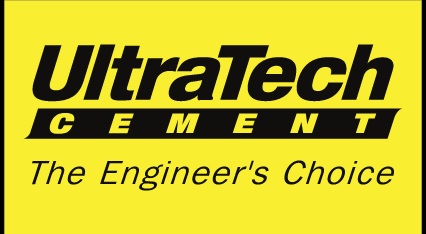UltraTech has announced today that it has been granted Environmental Product Declaration (EPD) certificates for four of its cement products, which are Ordinary Portland Cement (OPC), Portland Pozzolana Cement (PPC), Portland Slag Cement (PSC) and PCC (Portland Composite Cement). The grant was conferred basis Life Cycle Assessment Study conducted for these products following the standards for the preparation of Environmental Product Declaration (EPD).
An Environmental Product Declaration (EPD) is a clear and objective report that explains the materials used to make a product and how that product impacts the environment throughout its entire life cycle. The real facts and measurements are provided, and they enable consumers to understand a product’s environmental impact and sustainable features. EPDs promote a new, environmentally conscious way of thinking, and their emphasis on making transparent data easily accessible may have the power to influence change within the larger manufacturing and supply chain, resulting in a higher level of credibility and sustainability across the construction industry as a whole
UltraTech green products portfolio currently includes more than 70 GreenPro certified products. Around 70 per cent of the company’s cement production is blended cement, contributing to lower carbon emissions and reduced usage of raw materials such as limestone in the cement manufacturing process. This also makes UltraTech the largest consumer of industrial waste generated by Power and Steel sectors. UltraTech is committed to driving sustainability across the value chain of its operations. The focus areas are decarbonisation, circular economy, biodiversity management, water positivity, safe operations and community development.
UltraTech’s commitment to GCCA’s Net-zero Concrete Roadmap is in line with its ambitious sustainability targets and efforts to accelerate the decarbonisation of its operations. UltraTech has taken a holistic approach and has integrated low carbon strategy into its business conduct. It is scaling up investments in the development of innovative products and services, improving energy efficiency, increasing the share of renewable energy and scaling up the use of alternative fuels and alternate raw material (AFR) in its manufacturing operations.
About UltraTech Environmental Product Declaration
Environmental Product Declarations’ reliability, transparency, and quality are assessed by three factors which are:
1.Product Category Rule (PCR): The International standard for EPDs (ISO 14025)- certified EPDs must be created using PCRs that satisfy the required specifications. The life cycle assessment (LCA) scope, the product category, and the kinds of potential impacts that need to be assessed and reported are all described in the PCRs.
2. Life Cycle Assessment (LCA) Study: A recognized neutral third party normally conducts the LCA in compliance with the international LCA requirements (ISO-14040 series). The evaluation must, at a least, evaluate each impact on the environment or human health highlighted in the PCR.
3. Environmental Product Declaration (EPD) Report: The results of this assessment serve as the foundation for the quality of the resultant EPD. It must include a description of the study’s objectives, the product, the findings, and any other environmental information pertaining to the product. This information must also be disclosed in accordance with ISO 14025 and the PCR.
The scope of UltraTech’s EPD is “Cradle to Gate” which covers production to dispatch stage. The scope includes ecological data that is divided into the raw material production, inbound transportation and manufacturing. The assessment is done considering ‘one-tonne’ average cement and across parameters like Abiotic Depletion Potential (ADP), Acidification Potential (AP), Eutrophication Potential (EP), Global Warming Potential (GWP 100 years), Ozone Layer Depletion Potential (ODP, steady state), Photochemical Ozone Creation Potential (POCP) and Photochemical Ozone Creation Potential (POCP).
The study gives a better understanding of how the various life cycle stages of cement production impact the environment. Furthermore, it identifies the key areas all along the value chain where research and developments on improvements can be prioritised and investment can be planned accordingly, thus helping UltraTech in its efforts to develop environment friendly products and solutions.





